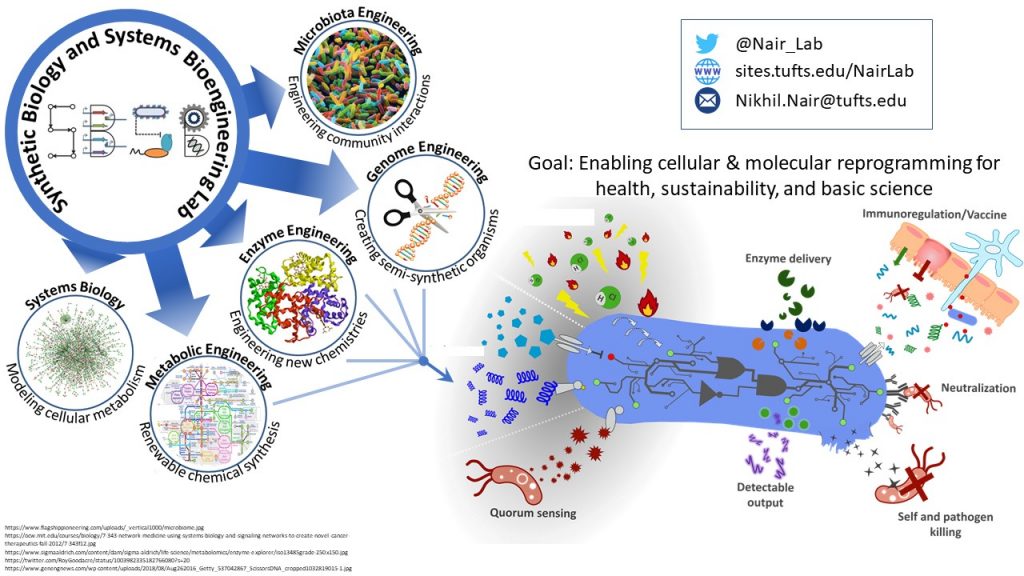Synthetic biology & Systems bioengineering
We have two primary interests in the lab – the first is to engineer biological systems for a variety of biochemical and biomedical applications, and the second is to glean fundamental understanding from these engineered systems about how biological systems work, and how & why they naturally evolved to their current state.
Application-driven engineering
The demand for better biofuels, more potent antibiotics, and biotherapeutics offer extremely fertile areas for such research and technology development. By using the strengths of evolutionary selection, we engineer new functions into biological systems – proteins, oligonucleotides, gene regulatory systems, or even entire organisms – with the aim of trying to find answers to the aforementioned needs. Due to the complexity of their physiology, many interacting aspects of cellular function need to be engineered in order to alter their behavior from free-living organisms to function-specialized synthetic organisms. These range from making relatively macroscopic changes such as altering large fragments of their genome to nanoscopic changes such as altering a few key residues in a protein’s structure to alter its substrate binding.
Fundamental science
The fast growth rates and relative simplicity of microbial systems (bacteria and yeasts) provide us the ability to experimentally study their natural evolution. In particular, we can demonstrate the evolution of various aspects of life, and understand the conditions under which such characteristics evolve. Some of the questions we are interested in answering are: why are certain aspects of regulatory control (such as regulons) so strongly conserved among all organisms? Are there methods of regulatory control that we are still unaware of?
